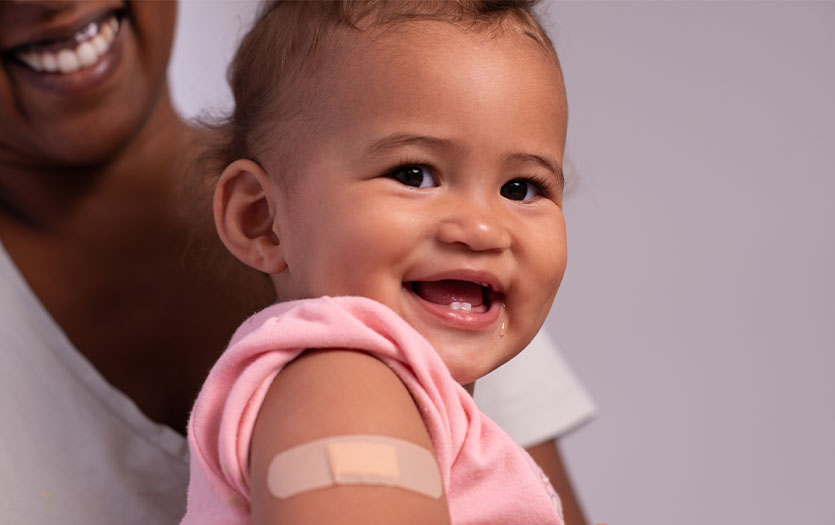
This post was written by Dr. Tony GiaQuinta, MD, FAAP, Section Chief, Pediatrics.
As a pediatrician, I have a lot of medicines and treatments in my toolkit. One of my best treatments, as my mentor Dr. Yalamanchali taught me, is “vitamin T”: time.
You might ask, “Wait. You mean, do nothing?” Well, yes and no. Giving the child time can mean avoiding expensive tests or adding unnecessary medicines that might have side effects or unintended consequences. But more importantly, time allows our amazingly complex and effective immune system to do its job!
When we recommend “supportive care,” we mean to focus on what you can control (hydration, healthy foods, rest) while your immune system goes to work. For most viral infections that we diagnose, this is our best recommendation. Of course, this recommendation can come with frustration, especially for sick children and the parents waiting for the immune system to mount its fighting response.
Frankly, some viruses, like the ones that cause Hand, Foot and Mouth Disease or common cold symptoms, are nuisances that we can live with, and rely on vitamin T. Others, like polio, measles and influenza, can cause serious damage to the body. Last year alone, over 200 children died from influenza. For these more dangerous viruses, we have another option, which is truthfully the most important in my medicine bag: prevention through immunization.
A virus worth preventing
For the majority of my career as a pediatrician, Respiratory Syncytial Virus (RSV) has been one of those pesky illnesses that doesn’t seem to respond to medicines and treatments, but left to vitamin T. Unfortunately, RSV, while common, leaves young children very sick with weeks of cough, congestion and in some cases, a dangerous respiratory condition called bronchiolitis, resulting in respiratory distress and dehydration, requiring hospitalization. In fact, RSV is the leading cause of hospitalization for children under 5.
Once the RSV virus circulates in a community, there’s not much stopping it. This virus spreads like wildfire from our coughs, sneezes and most commonly, all the things we touch! A bad season can mean millions of children infected, leading to sick kids, full hospitals and worried parents.
But all’s not lost!
Thankfully, the virus that has always been my biggest enemy has met its worst nightmare: a vaccine! For the past two years, a new vaccine called Nirsevimab (Beyfortus®) has been available to protect our most vulnerable children, the infants entering their first RSV season. Studies show Nirsevimab dramatically reduces the risk of your infant getting hospitalized from the RSV pneumonia (bronchiolitis).
Is it safe?
Importantly, the medicine has been tested for over a decade and is incredibly safe for infants as young as one day old. I’m often asked if I would recommend giving this vaccine to a family member, to which I say, “I would, and I did!” In fact, I can’t think of a more important medicine to give a newborn or infant under 8 months of age entering their first RSV season, which begins October 1 and runs through March. This is a game-changer for parents, children and pediatricians alike!
While it can be scary for parents to give a newer medicine, here are some tips to ease those fears:
- Remember, while this medicine is newer for the public, behind the scenes we have decades of experience with this medication. It’s finally available to the public because the technology that allows the medicine to last the entire RSV season, and comprehensive research studies proving its safety and efficacy are available.
- Talk with a family member who has experienced RSV bronchiolitis, to understand why this is not “just a virus,” but a serious illness that deserves protection.
- Talk to your pediatrician if you have more questions! Nirsevimabe will be available in clinics starting October 1, so if you have an infant born after that date, or an infant under 8 months old, this is an opportunity you don’t want to miss.
If you have questions about RSV, Nirsevimabnpine or other vaccines, speak with your pediatrician. If you don’t currently have a pediatrician, click here to find Parkview providers who are accepting new patients.
Sources



